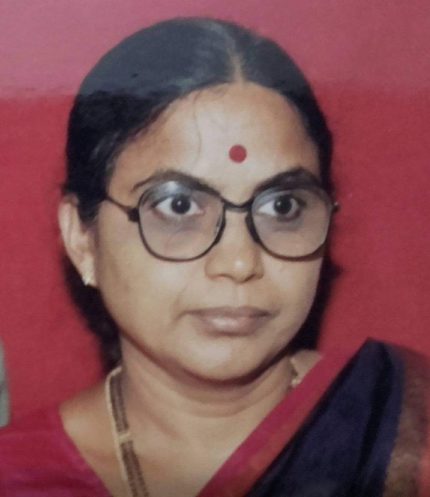
Poems of Aduri Satyavathi Devi
Tripura’s note
on
‘Collection of Aduri Satyavati Devi’s Poems and their translations’
Even a casual reader of Smt Aduri Satyavati’s collections of poems is bound to be struck by her exceptional talent for interacting with Nature, Music and Man. Her love for Nature is lyrically expressed, her passion for Music is melodiously worded, and her concern for Man is humanely related. Her Nature includes every object and phenomenon of Earth – the Sky, the Clouds, the Air, the Waters of the Rivers and the Seas, the hills and mountain ranges, the flora and fauna of the Earth, even the smallest seeds that grow into plants and trees bearing fruits and flowers, and even the muddied hands and fingers of the lowly gardener who takes care of her plants and flowers. This all-pervasive love is couched in a language that bears her individual stamp. Her choice of words leaves no one in doubt of her naturally gifted talent for picking the right word for the right feeling and the right experience to be expressed. Smt. Satyavati Devi is definitely a poet who will be remembered for a long long time, not only for her lyrical outpourings but also for her resentment and vehement protest against Man who has been ravaging nature for centuries with his greed and rapaciousness. It is a truism to say that translations of poetry of one language into another which is structurally different can rarely be as effective and as meaningfully readable as the original poems. But, in this case the translators deserve unreserved praise for their being not only true to the originals but at the same time effective and efficient. I do not wish to sound patronizing when I say that the translations of this collection of poems are as perfect as the original poems are.
*****
Poem-1
That’s Why
Telugu Original: Aduri Satyavathi Devi
English Translation: RS Sudarshanam
If the heart does not overflow at least once,
Like Godavari in full flow
If the heart does not become wet with torment at least once
How can the field of heart become fertile?
How can the seed of poetry sprout?
That’s why
I love a life hectic with rich experiences,
A life filled with fragrance of finer sensations.
*****
Telugu Original : Anduke

Aduri Satyavathi Devi was born in Guntur in the year 1948 and settled in Visakhapatnam after marriage in 1969. She began her literary career as a lyricist at the age of 13. She wrote a variety of lyrics numbering about 300 — light, classical, devotional, patriotic, children’s and others. More than 50 songs of Satyavati Devi were broadcast over All India Radio. Eventually she made forays into various other literary genres like Poetry, Short story, Essay, Radio Play, Musical Feature, Books, Film reviews, Forewords etc..She created a substantial corpus of poetry with more than 180 poems included in 4 anthologies of poetry. She received accolades from readers, scholars, critics and litterateurs for her sensitive rendering of poems. She participated in many Poetry Meets, Festivals conducted by All India Radio, Doordarshan and the Sahitya Akademi. She was widely translated into English and Hindi. Some of the translations appeared in renowned journals like Indian Literature (English), and Samakaaleen Bharateeya Saahitya (Hindi).
She published her first volume of lyrics Vennello Venugaanam in 1988. Her first volume of poetry Rekkamudavani Raagam was published in 1992 followed by Jalapaata Geetam in 1997 and Veyirangula Velugu Raagam in 2006. Hindi translation of Rekkamudavani Raagam came out in 2008 as “Pankh an Modnevaalaa Raag” and a miscellany of various facets of her literary endeavour Vennela Paarijaataalu was published posthumously in Dec 2008. She received many prizes and awards for her literary pursuits and accomplishments like STVD Kalasamithi Award for Rekkamudavani Raagam in 1993, and Telugu University’s “Pratibha Puraskaram” as “Best Poet” in 1994, “Krishna Sastry Award” from Andhra Lalita Kala Samithi (Secunderabad) in 1998, UNESCO Literary Award in 2000, and “Ramavruksha Benipuri Janma Sataabdi Sammaan” from Jaimuni Academy (Panipat) in 2002. An English translation of her poem, “Veyirekkala Pavuram” (Myriad Winged Bird) has been included in the syllabus of English texts in the poetry section of Degree year students by the Common Core syllabus Committee in AP from 2008.
